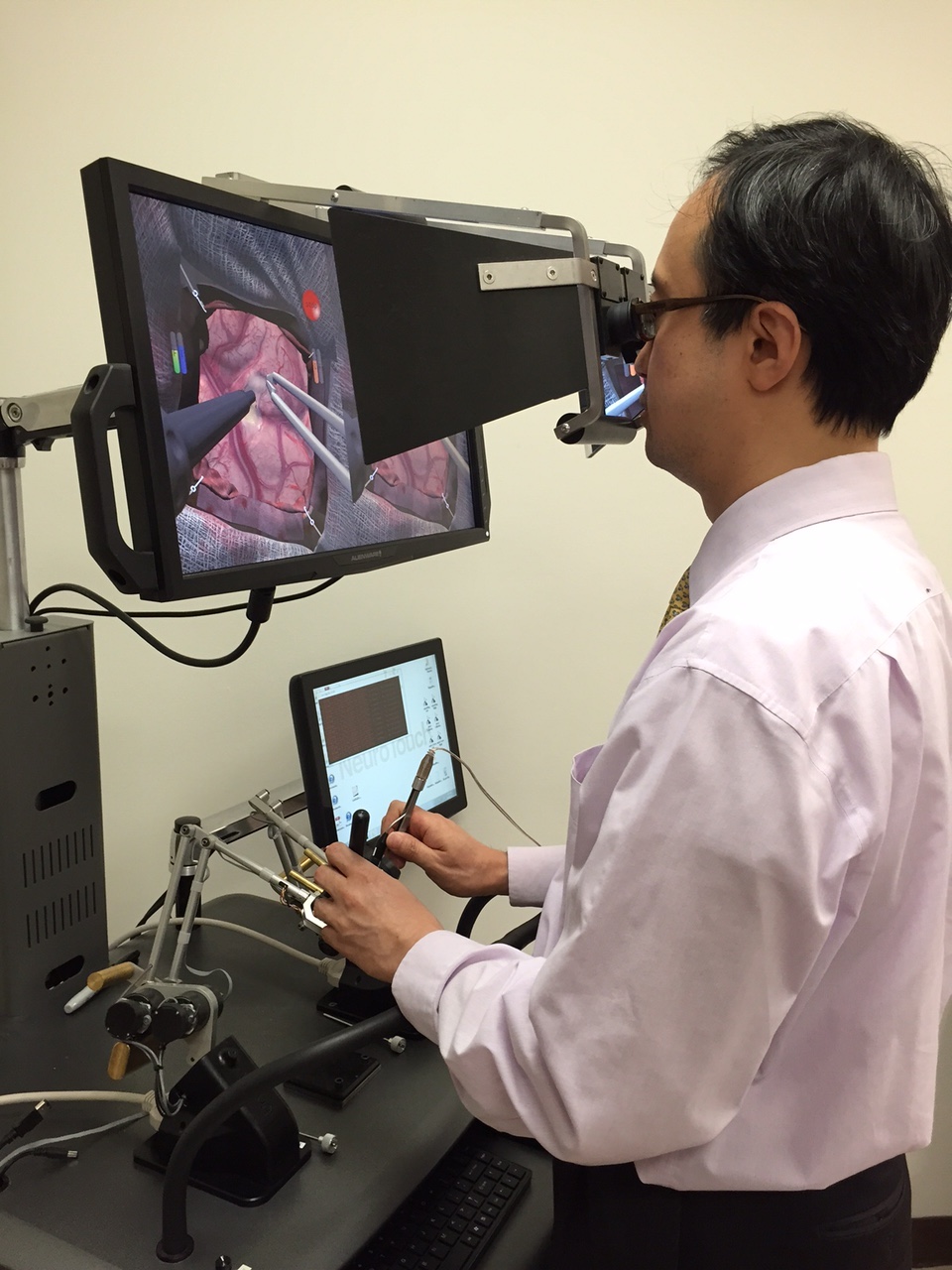
NeuroVR (previously NeuroTouch) is the world’s most advanced virtual reality (VR) neurosurgical simulator, which has been developed by the NRC with a consortium of university centres across Canada and strong clinical and research components from the NeuroSim.
NeuroVR aims to provide rehearsal, training, planning and evaluation systems, integrated with MRI for patient-specific neurosurgical oncology and other advanced surgical procedures.
Neurosurgical Oncology
Neurosurgical oncology is evolving towards less invasive yet more complex procedures that require elaborate rehearsal to prevent operative errors, improve patient safety, and enhance overall surgical outcome.
Tumour resection is a high-risk procedure because of (i) potential damage to surrounding tissues, such as functional areas, nerves and blood vessels and (ii) increased risk of brain tumour recurrence from incomplete tumour removal. The technologies developed in this project will provide a solid foundation for rehearsing tumour resections.
The VR rehearsal system’s high-resolution haptics allows a person to feel the difference between normal tissue and tumour tissue integrated with realistic tool-tissue behavior and high realism visualization. Enhanced MR images provide input information on critical anatomical structures, functional areas and tissue biomechanics.
For the first time these VR neurosurgical simulation systems are allowing the assessment of the tactile and visual cues that are important in determining how expert surgeons perform neurosurgical procedures.
 The Montreal Neurological Institute and Hospital
The Montreal Neurological Institute and Hospital
The first bimanual neurosurgical simulator has been installed in the Neurosurgical Simulation and Artificial Intelligence Learning Centre. This simulator, along with an advanced system to quantify the neurosurgical cognitive and technical expertise of residents and consultants (GAINS), is being developed in co-operation with Dr. Rolando Del Maestro and his team at the Montreal Neurological Institute and Hospital (MNI/H)
The MNI/H has been on the forefront in the past with the installation of the first CT scanner, the first MR scanner and the first PET scanner in Canada. NeuroVR is the most advanced simulator for surgical procedures that has been developed in the world and the MNI/H is the first hospital in the world to have a lab that is developing both the technical and cognitive systems for metrics that could be used worldwide to assess operative skills. Industrial partners are cooperating with us to develop systems that will keep Canada be the leader in simulation technologies.
 |
 |
 |
| Dr. Wong, Professor of Neurosurgery Chinese Univeristy of Hong Kong |
Aysha Alsahawi, visiting medical student King Faisal University |
Dr. Khalid Bajunaid, M.Sc. student McGill University |

 NeuroVR (previously NeuroTouch –
NeuroVR (previously NeuroTouch –